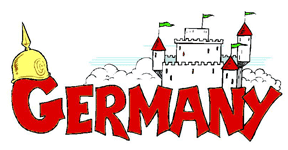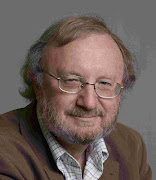160+ online Linkedin.com Endearing Endorsements, Commendations & Kudos from coaches, colleagues & clients for this gifted & talented researcher--& that's just since July 2008! & that's just from folks who happen to be on Linkedin! http://www.Linkedin.com/in/germangenealogist
Karl has received hundreds more offline client letters of gratitude & commendation since 1979. This, due to Karl's having found ancestral data, often within MINUTES, that other researchers either did not, could not or would not find.
Since 1979, THOUSANDS of data, documents & images for THOUSANDS of ancestral family members for HUNDREDS of clients' ancestral family members have been found by The German Genealogist!
After THOUSANDS of hours of German Genealogy research, in 1984, Karl-Michael Sala was accredited as a German Genealogist by the Family History Library of the Church of Jesus Christ of Latter-day Saints. After more than a decade of absolutely stunning successes for his clients, Karl was run into by a drunk pick-up truck driver. This 1995 near-death experience ultimately caused that his accreditation was involuntarily pulled. This was to protect the name of the Church of Jesus Christ of Latter-day Saints. However, since '95, along with Karl's recovery, Karl has had more success than ever for clients, patrons, himself & his living family members!
Since 1980, Karl has traveled 7 times behind the former Iron Curtain to East Germany to successfully exhaust hundreds of parish registers of the target ancestral family members.
Karl is a former USAFR Intelligence Officer who earned a Deserving Airman Commission while he had been serving as an Intelligence Operations Specialist & Linguist (German), Interrogator, Debriefer (non-commissioned officer at that time)
Karl is the very 1st person hand-picked for the Paid Expert Ancestry Research Line at Ancestry.com. His wife, Lynell Sala was the 2nd person selected for their short-lived, but highly successful Paid Expert Research Team!
When that project was abandoned, because of his language & research skills, Karl was promoted to taking the majority of research-oriented emails & phone calls from Europe for Ancestry.de, the Deutschland, i.e. Germany, version of Ancestry.com!
As the primary European ancestral genealogy & family history research consultant, Karl served Europeans in their native German language. This further fulfills blessings he had been given earlier in his life.
On the Ancestry.com International Team, Karl served as a consultant for Australia, Austria, Great Britain & mainland Europe! He cracked & solved many cases in those diverse locations.
For their clients, Karl & Lynell have found data & documents on thousands of living & deceased persons. The German Genealogist has solved cases that others said "can't be done!"
Just since Memorial Day 2010, Lynell & Karl-Michael Sala have cracked 6 cases in 6 locations! Germany (4), Lithuania (Littau, i.e East Prussia or Ostpreussen), Poland (5) (Posen or Poznan), Atlantic Ocean & the USA.
Indeed, Karl-Michael Sala is a Master German Genealogist!


 John D Reid
John D Reid